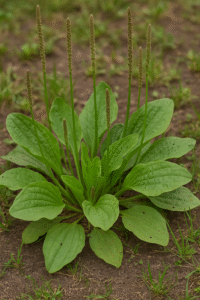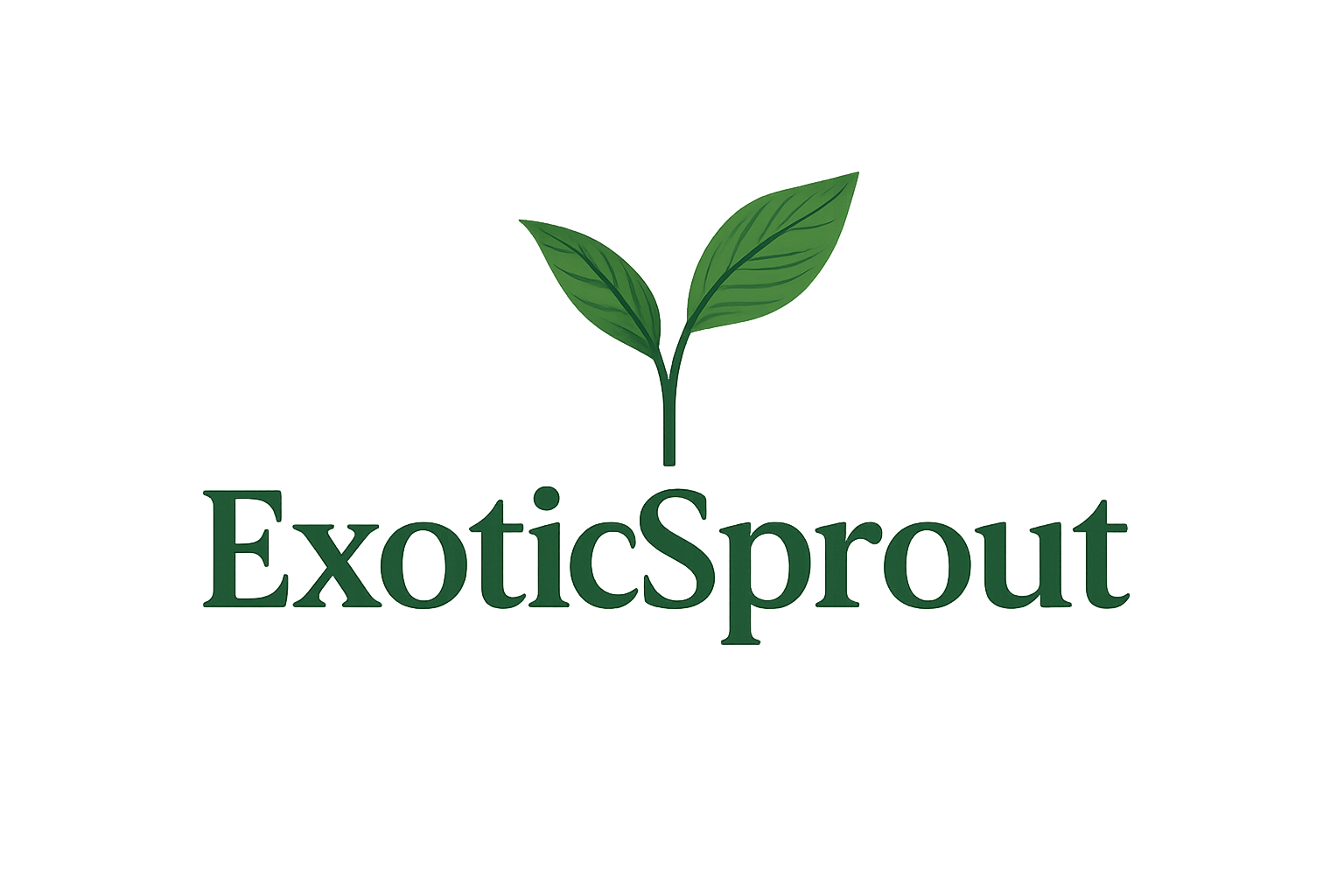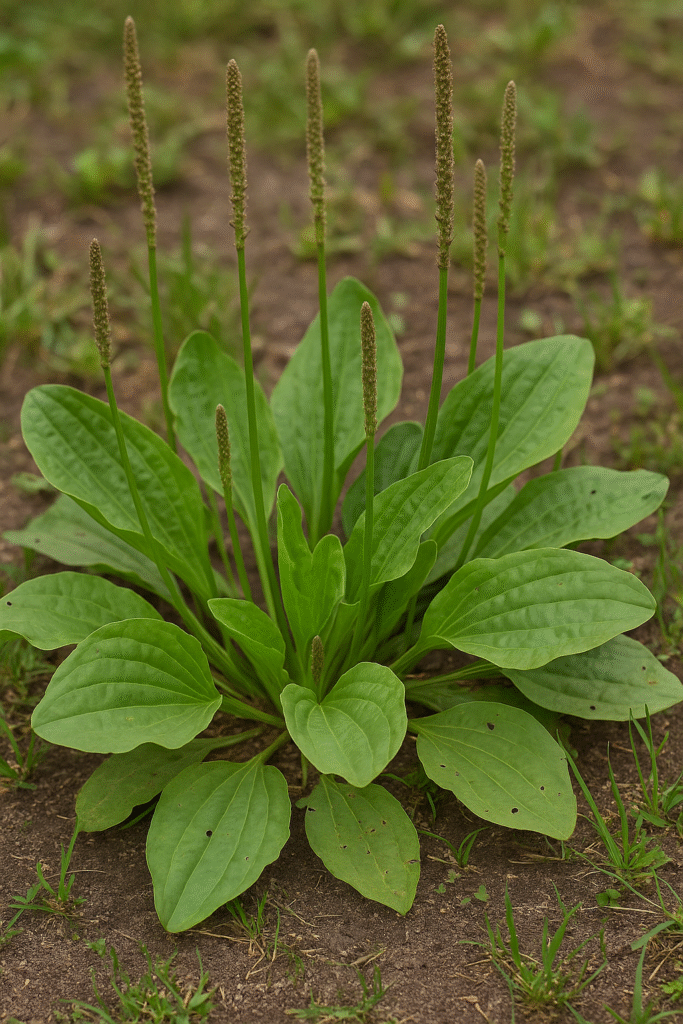Have you ever noticed a broad-leaved plant growing along sidewalks, in vacant lots, or even in your own backyard? This often-overlooked herb is broadleaf plantain (Plantago major), a surprisingly powerful natural remedy with a long history of medicinal use.
What Is Broadleaf Plantain?
Broadleaf plantain is a perennial herb from the Plantaginaceae family. Native to Europe and Asia, it has now spread across the globe and thrives in many environments — from city sidewalks to rural fields. Its most recognizable features are the wide, green leaves with prominent parallel veins and tall stalks that produce small, clustered flowers.
Despite being considered a weed by many, broadleaf plantain is anything but useless. In fact, it’s one of nature’s most versatile healing plants.
Medicinal Properties and Health Benefits
Broadleaf plantain has been used in traditional and herbal medicine for centuries. All parts of the plant — leaves, seeds, and roots — offer therapeutic benefits. It’s known for being anti-inflammatory, antimicrobial, astringent, demulcent, and even mildly analgesic.
Here are some of its top medicinal uses:
1. Natural Wound Healer
When applied directly to minor cuts, insect bites, or skin irritations, plantain leaves help soothe the skin, reduce swelling, and promote healing. Simply crush a few fresh leaves and place them over the affected area like a poultice.
2. Respiratory Relief
Plantain tea is commonly used to ease symptoms of bronchitis, sore throat, and cough with phlegm. Thanks to its soothing and expectorant properties, it helps clear the airways and calm inflammation.
3. Digestive Aid
The plant’s astringent and anti-inflammatory effects make it effective for treating indigestion, ulcers, and diarrhea. A tea made from the leaves can help soothe the stomach lining and improve digestion.
4. Skin Health
Broadleaf plantain can help reduce acne, eczema, rashes, and minor burns. Its antimicrobial compounds protect the skin and speed up the healing process.
5. Blood Pressure and Detox
Some research suggests that the seeds and leaves may have mild diuretic and hypotensive effects, helping to flush toxins from the body and support heart health.
How to Use Broadleaf Plantain
There are several ways to enjoy the healing benefits of this plant:
-
Tea or infusion: Made from dried or fresh leaves for respiratory, digestive, or urinary issues.
-
Poultice: Crushed fresh leaves applied to the skin for bites, cuts, or irritations.
-
Baths and compresses: For treating skin conditions or vaginal inflammation.
-
Tincture: Alcohol-based extract for long-term storage and internal use.
Precautions
Although natural, broadleaf plantain should be used wisely. In high doses, or by sensitive individuals, it may cause allergic reactions or digestive discomfort. Pregnant or breastfeeding women should consult a healthcare provider before using it.
Be sure to harvest plantain from clean areas, away from roads or places that may be contaminated with pesticides or animal waste.
Growing Plantain at Home
One of the great advantages of broadleaf plantain is how easy it is to grow. It thrives in various soil types, especially in rich, well-drained soil with partial sunlight. Once established, it grows rapidly and requires minimal care — perfect for low-maintenance herbal gardens.
🌿 Make Gardening Safer and More Comfortable
If you enjoy harvesting herbs like plantain or working with your garden’s natural medicine, don’t forget to protect your hands. Whether you’re pulling weeds, pruning roses, or handling soil, a reliable pair of gloves makes all the difference.
That’s why we recommend:
DLY Gardening Gloves for Women
✔ Thorn-resistant rose gloves
✔ Extra-long sleeves for arm protection
✔ Beautiful blue color
✔ Comfortable medium size
🧤 Try them now:
👉 Shop on Amazon
🧤Ver luvas de jardinagem na Amazon


